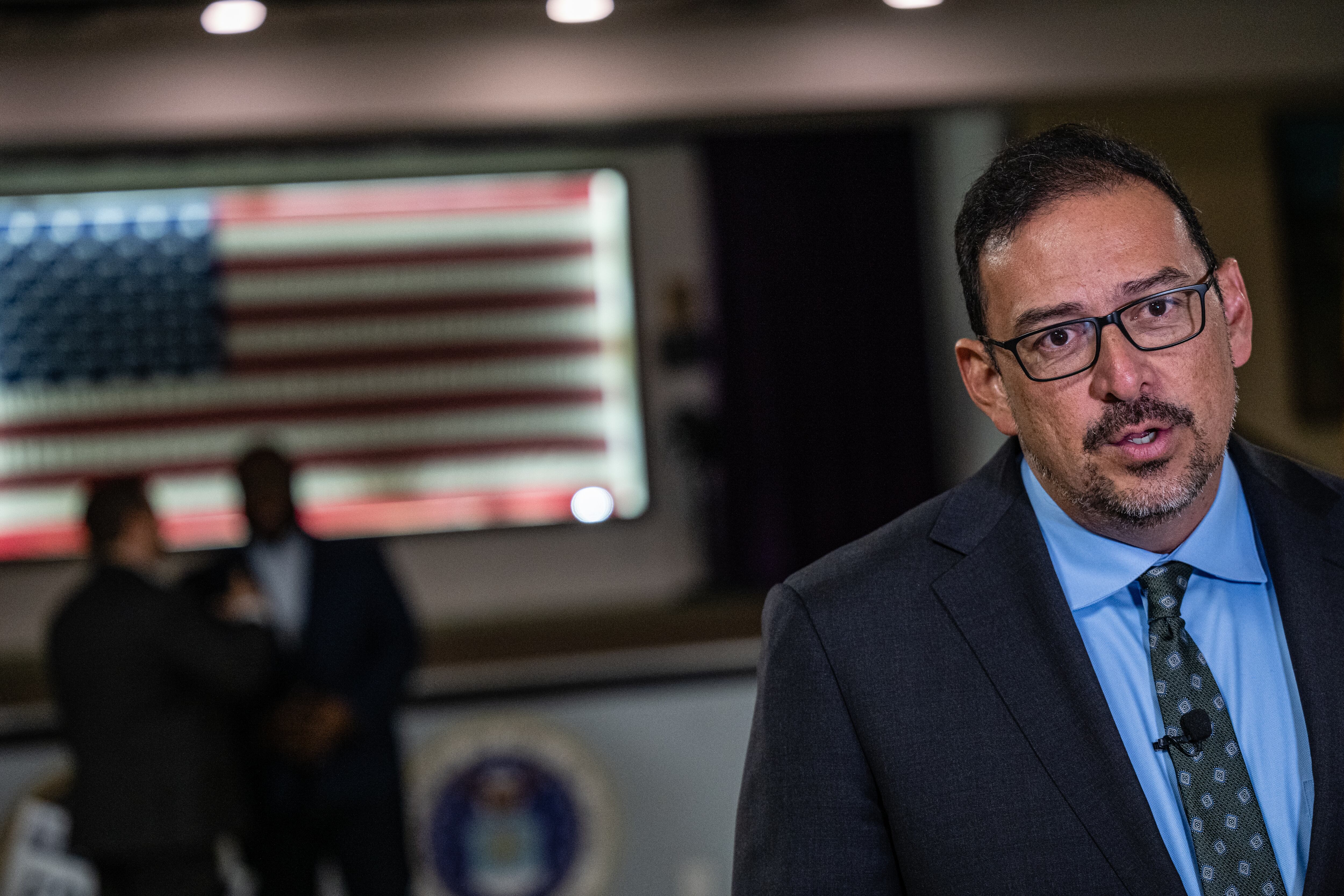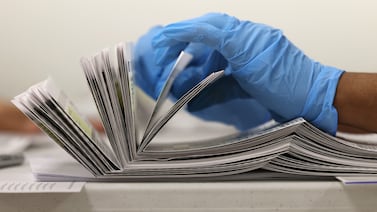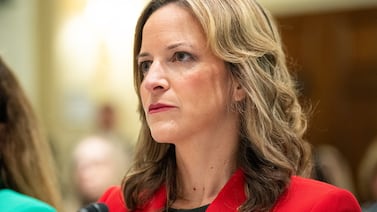Votebeat is a nonprofit news organization reporting on voting access and election administration across the U.S.
A version of this post was originally distributed in Votebeat’s free weekly newsletter. Sign up to get it delivered to your inbox every Saturday.
Hi, y’all,
If we’ve said it once, we’ve said it a thousand times: one-time influxes of cash are no way to fund the ongoing needs of elections. That doesn’t roll off the tongue, sure, but it has the advantage of being true.
The Arizona secretary of state’s office just handed us a fantastic example of this reality. Secretary of State Adrian Fontes requested in ongoing funding to better support counties as they administer elections — something Votebeat Arizona reporter Jen Fifield’s coverage shows his office desperately needs to do more of.
You can tell where I’m going with this: They didn’t get the money.
The Arizona Republicans probably don’t want to hear this, but somehow, they’re following clearly in the footsteps of national Democrats, who have also resisted calls to create a predictable funding stream for elections. In fairness, though, they are well-worn footsteps.
Among other requests, Fontes’s office asked for slightly more than $1 million ongoing funding, plus $450,000 in a one-time disbursement. Among other things, that money would have been used to hire around a dozen full-time staff to bolster county services and cybersecurity.
They were instead given $0 more in ongoing funding, and a one-time disbursement of $390,000.
By crossing most of what was on their list off of it and squishing money around, the office has managed to offer limited employment contracts to two people.
“The lack of funding for my office, particularly ongoing funding, means less money for physical security for voters looking for in-person assistance, fewer staff to support the counties that run our elections, and inadequate funding to maintain the secure voter registration system that 13 of 15 Arizona counties rely upon,” Fontes said in a statement to Votebeat. “Despite the shortcomings in this budget, we have found, and will continue to pursue, creative ways to further my priorities to ensure safe, secure, and accurate elections across our state.”
It’s a dance the vast majority of election officials know the steps to by heart: the money shuffle. No one requests it at weddings, but it’s all the rage in election offices.
Here at Votebeat, we are not naive. We realize that almost no state or federal office in the history of this great nation has ever been given the full amount they requested unless they are a subsection of the Department of Defense and capable of building a tank depot in Cleveland.
Still, the rejection of Fontes’ request is pretty stark in a state like Arizona, where lawmakers purport to be Very Concerned © about election security issues.
As anyone who has ever run a business can tell you, it’s next to impossible to hire ongoing staff with a one-time infusion of funding. Without a predictable and stable source of money, planned technology and infrastructure upgrades also become difficult to manage. In short, long-term planning — the sort of thing necessary for securing something as massive as a statewide election — becomes impossible.
I’m sure this is an argument that could be made about a lot of issues: education, healthcare, etc. Everyone believes their pet issue is critically underfunded — or at least ineffectively funded.
But it just seems to me — and I know I am biased — that few other parts of society are more integral than your ability to cast a vote fairly and smoothly. That’s an argument that Arizona Republicans in the legislature make almost daily (though, I admit, with different implications), but here they fail to live up to their own standards when absolutely no one is stopping them but themselves.
A heads up: We’re taking time off from this newsletter for Memorial Day weekend. We’ll be back on June 3.
Back Then
In the year 2000 (don’t worry, this is not about hanging chads), Democrats in Arizona held the country’s first legally binding election where voting took place online. That March, more than a third of votes cast in the Democratic presidential primary were cast via dial-up internet “from homes, schools, workplaces or libraries.” Still others cast ballots over “Internet connections at the 124 polling places.” The startup responsible for pulling off the vote was called, and I’m not kidding, Elections.com.
Obviously, there were problems. According to the New York Times coverage at the time, “technical and logistical problems, including an hourlong Web site failure and software problems among users, demonstrated that more safeguards need to be taken before larger groups are asked to vote via computer.”
New From Votebeat
From Votebeat Arizona: Why Kari Lake is still, six months after losing, in Arizona courts arguing the 2022 election was stolen
From Votebeat Michigan: “You saw him out more than anybody”: Aghogho Edevbie brings his voting rights passion from streets of Detroit to Department of State
From Votebeat Pennsylvania: Inside one northeast Pa. county that has made light work of running “two elections” since the advent of mail-in balloting
From Votebeat Texas: After a setback, a GOP effort to pull Texas out of a multi-state program to clean voter rolls could move forward.
In Other Voting News
- Elected officials representing communities of color in Tarrant County, Texas, are asking the U.S. Department of Justice to investigate recent actions by the county judge and other local officials, and said they are concerned those actions are interfering with voting rights, the Star-Telegram reported.
- Indiana voters must now include identification numbers — such as the last four digits of their Social Security number and a driver’s license number — when submitting mail ballots, under a new law that takes effect July 1, WNDU reported.
- Some local Ohio election officials are struggling to secure polling locations and poll workers for an August special election they didn’t anticipate, Statehouse News reported, and they’re expecting a higher-than-usual turnout for a vote that would change the process for amending the state constitution.
- The Flathead Beacon takes a deep dive into the exodus of staff in the Lincoln County, Montana, elections office, tying their departures to the “Big Lie.”
- Sheriff Calvin Hayden of Johnson County, Kansas, testified earlier this year that his office had turned more than 15 statutory violations of election law over to the district attorney’s office, but a public records request found only one referral for which the district attorney said there was not evidence to support bringing criminal charges, the Shawnee Mission Post reported.
- Want to spend more time thinking about nightmare election scenarios? TV’s “Succession” has you covered — and Politico writes about what rang true and what didn’t.
Jessica Huseman is Votebeat’s editorial director and is based in Dallas. Contact Jessica at jhuseman@votebeat.org.



